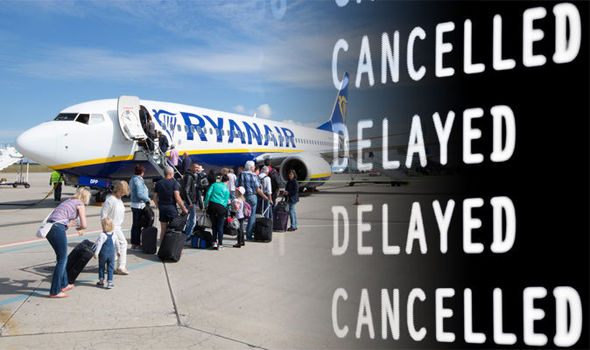Earlier this year, British Airways had a major collapse of their IT systems, causing a day of chaos across its entire global network as flights had to be cancelled. The problem, it appears, was a lack of what IT specialists call “redundancies”. In other words, you need backup systems – you need to have extra capacity so that if something goes wrong with your main system, there’s a backup to switch to.
In an environment where you’re trying to cut costs and save every dollar and pound you can, it might seem like a good idea to remove such redundancies from the system. But small, short term savings turn into nightmares if anything goes wrong. The most generous estimate of the cost of the May 2017 systems crash is £150 million to BA. It’s probably much more than this, not counting reputation and brand damage as well.
 This past week, Ryanair has also found itself cancelling flights – about 50 a day for the next 6 weeks. This is a mess of their own making. They changed their leave policy last year, creating a situation where pilots have mandatory leave that must be taken before the end of 2017. Ryanair forced their pilots to not take that leave during the busy holiday season in July and August, but now it must be taken, and they’re short of pilots. They have no option. They must cancel flights.
This past week, Ryanair has also found itself cancelling flights – about 50 a day for the next 6 weeks. This is a mess of their own making. They changed their leave policy last year, creating a situation where pilots have mandatory leave that must be taken before the end of 2017. Ryanair forced their pilots to not take that leave during the busy holiday season in July and August, but now it must be taken, and they’re short of pilots. They have no option. They must cancel flights.
This was a crisis they knew was coming, and they should have done better, even if only in the communication of the issue to passengers well enough in advance. There’s probably a lesson there in corporate greed, rather than mere incompetence. But the lesson I want to draw from Ryanair’s current crisis is that of capacity. They have no excess capacity in their system. Everyone is at full utilisation all the time, and so if anything – even something small – goes wrong, there’s no room for recovery. And the cost to the business will again well outstrip any cost saving benefits they have gained over the years. Probably a decade or more of profits made through cost cutting wiped out in a 6 week period from hell for the business.
Let me make an even bigger point – about innovation. Almost every company our team knows, and every company we’ve researched that has a reputation for ongoing, systemic and systematic innovation, gives its people free time and consciously creates space for creativity and innovation. If you are working your people to the bone, they won’t have the headspace to innovate. If you are “cutting out the fat” so much, you’re bound to cut away a little bit of muscle too – maybe a lot of it!
Cost cutting, lean productivity and total efficiency might feel like clever strategies. And they’ll look good too. Until something goes wrong. Or until you need actual innovation, rather than mere incremental improvements.
Don’t be like BA. Don’t be like Ryanair. Don’t be like most of the companies in the world that say they want innovation, but don’t actually get it. Don’t work your people to the bone. Don’t account for every minute of their time. Don’t value productivity above everything else.
Create some space for innovation.

